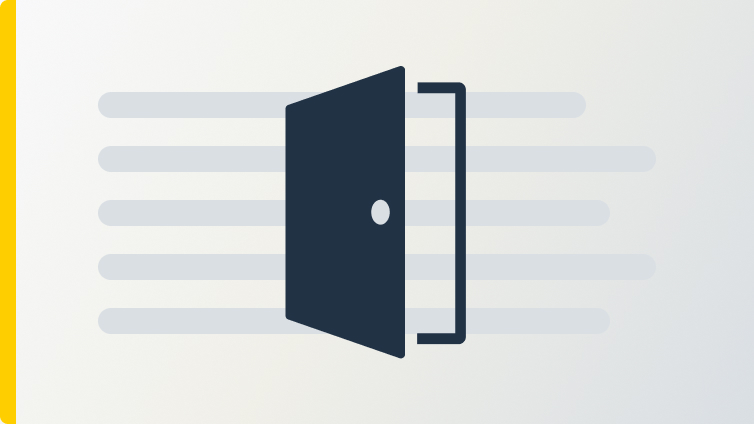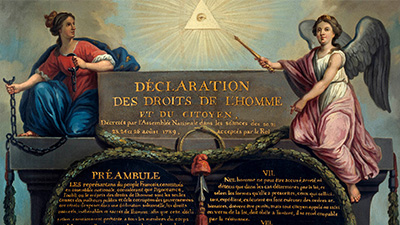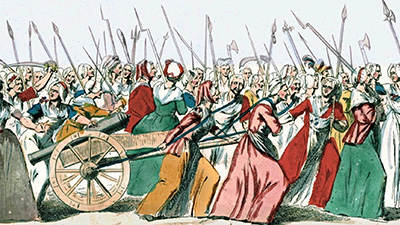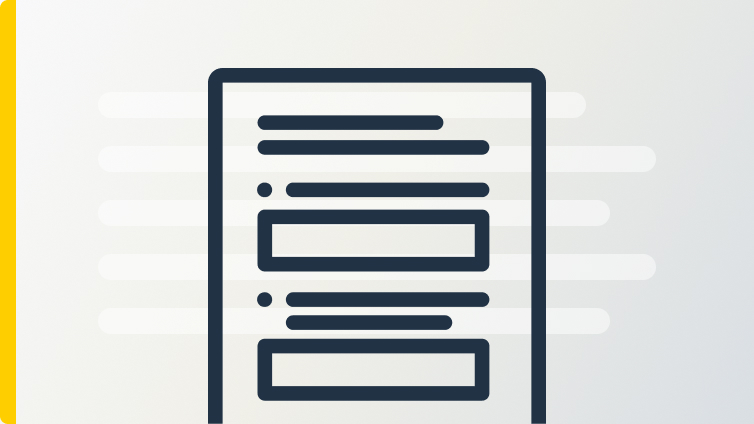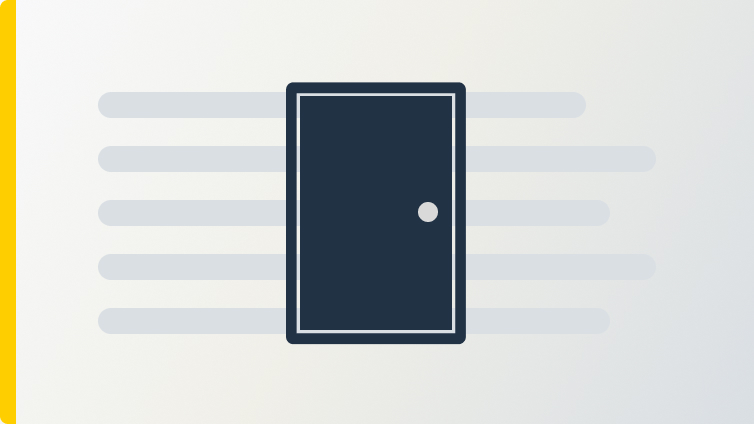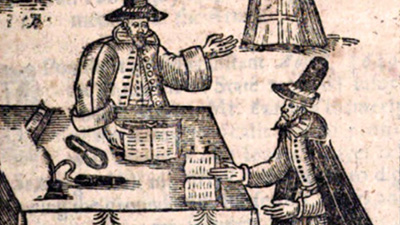What Causes Revolutions?
Teacher Resources
Driving Question: Are revolutions sparked by new ideas or by economic conditions?
The rights of the individual, the sovereignty of states, the growth of capitalism, and new ideas about democracy were ingredients in the recipe for revolution. But revolutionaries also took to the streets to protest the price of bread. What’s more important—new political ideas or economic realities?
Learning Objectives:
- Evaluate the importance of ideological and material conditions in producing revolutions.
- Practice the historical thinking skill of causation to assess the sources of revolutionary action.
Vocab Terms:
- bourgeoisie
- capitalism
- citizen
- consent
- enslaved people
- indentured laborers
- sovereignty
Opener: What Causes Revolutions?
To teach this lesson step, refer to page 2 of the Lesson 2.3 Teaching Guide.
The lesson opener asks students to determine causes and effects for a social outburst in Chile in 2019. Need to brush up on causation? See page 4 of our Historical Thinking Skills Guide.
The study of a revolution is incomplete unless we consider the causes—why did it happen? You’ll learn a lot more about revolution and causation in this lesson. Jump-start your thinking by exploring the causes of a real-life “social outburst.”
Revolutionary Ideas and Empty Stomachs
To teach this lesson step, refer to page 3 of the Lesson 2.3 Teaching Guide.
The two articles in this lesson step are meaty! Remember that you can adjust the Lexile level at the top left of the page. Check out other ideas to support students on pages 4 and 5 of our Reading Guide.
What causes revolutions? Do revolutionary ideals spark people to action? Or are economic conditions more important? Use these two articles and activity to decide for yourself.
-
Guiding Questions
-
Before you read
Preview the questions below, and then skim the article. Be sure to look at the section headings and any images.
While you read
Look for answers to these questions:
- What is a citizen, and how is the idea of popular sovereignty important to creating citizens?
- Thomas Hobbes was an important thinker from this period who wrote Leviathan, a book about popular sovereignty. How does the image from Leviathan express that idea?
- What groups of people were left out of ideas about sovereignty?
- How did ideas about sovereignty lead to some people losing rights?
After you read
Respond to these questions: What is the author of this article’s main claim about sovereignty? Do you agree?
-
Guiding Questions
-
Before you read
Preview the questions below, and then skim the article. Be sure to look at the section headings and any images.
While you read
Look for answers to these questions:
- What were three important economic changes that accompanied the growth of capitalism in this period?
- How did the Seven Years’ War contribute to both the American and French Revolutions?
- What economic problems helped unite the middle-class bourgeoisie and the poor in the French Revolution?
- What four groups in Haiti had complaints against the French government, and what were those complaints?
After you read
Respond to this question: Do you think political ideas or economic conditions were more important in sparking the revolutions of this period?
Mapping Revolutionary Causes
To teach this lesson step, refer to page 5 of the Lesson 2.3 Teaching Guide.
As students map causes and consequences of revolutions, you may want to differentiate for some learners. We’ve got ideas for building in supports! See page 8 of our Differentiation Guide.
Use the information from your Revolutions Causation Tool to create a causal map that makes the connections between events over time and uncovers what really causes revolutions.
Closer: What Causes Revolutions?
To teach this lesson step, refer to page 7 of the Lesson 2.3 Teaching Guide.
We all know what it feels like to want to see something change. The “something” might be as minor as what’s on the lunch menu, or as major as a whole political system. In this quick activity, you’ll write your own revolutionary manifesto.
Revolutionary Ideas in England
To teach this lesson step, refer to page 7 of the Lesson 2.3 Teaching Guide.
The roots of revolutionary thought go further back than the Enlightenment. Extend this lesson by exploring the political changes in England that started 600 years before the Age of Revolution.
-
Guiding Questions
-
Before you read
Preview the questions below, and then skim the article. Be sure to look at the section headings and any images.
While you read
Look for answers to these questions:
- What rights did the Magna Carta guarantee to the barons, and how were these principles reflected in the United States Constitution and Bill of Rights?
- When did the English Civil War take place, and what were its causes and outcomes?
- How did the English Civil War influence the American War of Independence?
- Who were the key figures in the Glorious Revolution of 1688, and what key provisions were included in the English Bill of Rights?
- What lessons did American revolutionaries take from the English Civil War and the Glorious Revolution?
After you read
Respond to this question: Which of the three frames—communities, networks, or production and distribution—do you think played the biggest role in the political changes described in this article? Use evidence from the reading to explain your answer.

